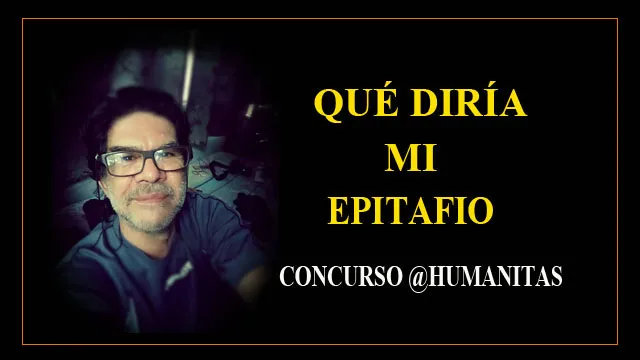
Saludos. Los amigos de @humanitas nos invitan a participar en un concurso un tanto inusual, puesto que se trata de un tema al que solemos sacarle el cuerpo: la muerte. Deben ser pocos los que dedican su tiempo a pensar en cómo les gustaría ser recordados y menos los que se pongan a escribir sobre su epitafio. Les comento…
En nuestra cultura Occidental la muerte es considerada una especie de tabú. No se entiende como parte de la vida sino que más bien tiene cierto carácter trágico. Desde niños aprendemos a temerle y a considerar su presencia como un huésped indeseable y terrible. En el fondo lo que nos martiriza al pensar en ella es la idea de final. La muerte sería el final de todo. Religiones como la cristiana abren una ventana de esperanza al plantear que luego de la muerte nos espera el reino de los cielos.
Otras culturas como las Orientales la ven de manera distinta. Incluso algunas como la hindú la consideran como un peldaño más en la evolución de la consciencia, un paso más hacia altos niveles de trascendencia. Vistas así las cosas la muerte no estaría asociada al final, sino a una transición, en la que sencillamente cambiamos de plano para dar continuidad a un proceso infinito. Poderla pensar de ese modo debe dar mucho alivio.
El concurso de los amigos de @humanitas me recordó los postulados de la tradición estoica. Para los estoicos pensar en la muerte era normal e invitaban a hacerlo. Pero no para fijar la atención en lo que de trágico hubiese en ella y mucho menos para centrarse en el dolor y el sufrimiento que conlleva, sino para trascenderla mediante la toma de conciencia de su inevitabilidad. Pensar que la muerte es una realidad inminente nos puede llevar a valorar más la vida.
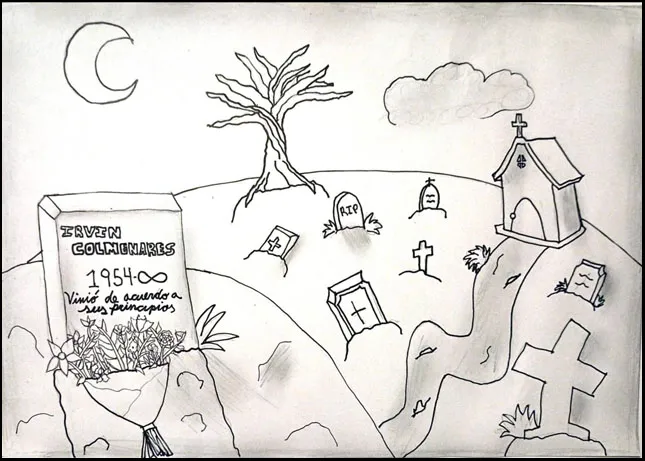
Desde esa perspectiva resultaría muy sano pensar en cómo nos gustaría ser recordados después de nuestro paso por la vida terrenal. De ese modo pudiéramos practicar más la virtud, esforzarnos en mejorar nuestro trato con los demás, y concentrarnos en dejar el mundo en mejores condiciones que cuando llegamos a él.
Tener plena conciencia de la inminencia de la muerte también nos lleva a valorar más cada segundo de vida, a no postergar nada. Ninguna actividad, ningún abrazo, ninguna sonrisa, ninguna palabra de aprecio debe ser postergada porque “para mañana no sabemos…”
Hace pocos días escribí algo sobre el orgullo y comentaba en esa oportunidad que uno de mis orgullos más grandes era haber vivido apegado a los dictámenes de mi conciencia. Y no es que al usar la fórmula del infinitivo compuesto para el verbo vivir esté indicando que el fin de mis días está próximo. No, estoy bien pero ya no soy un muchacho y a mis sesenta y ocho años creo poder estar seguro de que en el tiempo que me quede, poco o mucho, seguiré como hasta ahora, viviendo de acuerdo a lo que creo y tratando de no negociar mi pensamiento por alguna prebenda. De todos modos respeto mucho aquella máxima que reza: “nuca digas de esta agua no beberé…”
En un mundo pragmático como el que vivimos donde se da tanta relevancia a cuestiones como la fama, la posesión de bienes materiales y la ostentación del poder, cualquiera pudiera menospreciar ese orgullo mío e incluso mofarse diciendo: ¡Ah sí, gran cosa… con los principios no se come ni se disfruta de la vida…!
Claro, son cuestiones de valores, un terreno en el que no hay nada completamente taxativo, donde cada quien actúa de acuerdo a sus creencias y donde casi todo pudiera ser aceptado o por lo menos respetado.
Como en la convocatoria se nos invita a hacer un dibujo le pedí a mi hija que me echara una mano, yo la verdad no tengo ninguna gracia para ese arte. Para no alarmarla le tuve que aclarar que era para una publicación y al darle el tema ella no hizo ningún comentario; conociéndome como me conoce seguro que le pareció muy lógico que mi epitafio fuera el que le escribí por whatsapp: vivió de acuerdo a sus principios. Lo que me confirmó que cualquiera que me conozca sentiría que ese epitafio realmente tuvo que ver conmigo.
Una vez más he disfrutado mucho haciendo la publicación para esta excelente comunidad que es @humanitas. Les agradezco que nos sigan dando temas que motiven la reflexión.
Gracias por tu tiempo.


Greetings. The friends of @humanitas invite us to participate in a somewhat unusual contest, since it deals with a topic that we tend to take out of the body: death. There must be few who spend their time thinking about how they would like to be remembered and even fewer who write about their epitaph. Let me tell you...
In our Western culture death is considered a kind of taboo. It is not understood as part of life but rather as having a certain tragic character. From childhood we learn to fear it and to consider its presence as an undesirable and terrible guest. Deep down, what torments us when we think of it is the idea of the end. Death would be the end of everything. Religions such as Christianity open a window of hope by stating that after death the kingdom of heaven awaits us.
Other cultures, such as the Eastern ones, see it in a different way. Even some, such as Hinduism, consider it as one more step in the evolution of consciousness, one more step towards higher levels of transcendence. Seen in this way, death would not be associated with the end, but with a transition, in which we simply change plane to give continuity to an infinite process. To be able to think of it that way must be a great relief.
The contest of the friends of @humanitas reminded me of the postulates of the Stoic tradition. For the Stoics to think about death was normal and invited to do so. But not to focus on what was tragic about it, much less to focus on the pain and suffering it entails, but to transcend it by becoming aware of its inevitability. Thinking that death is an imminent reality can lead us to value life more highly.
From this perspective, it would be very healthy to think about how we would like to be remembered after our earthly life. In that way we could practice virtue more, strive to improve our dealings with others, and concentrate on leaving the world in better condition than when we arrived in it.
Being fully aware of the imminence of death also leads us to value every second of life more, to procrastinate nothing. No activity, no hug, no smile, no word of appreciation should be postponed because "for tomorrow we do not know..."

A few days ago I wrote something about pride and I commented on that occasion that one of my greatest prides was to have lived attached to the dictates of my conscience. And it is not that by using the formula of the compound infinitive for the verb to live I am indicating that the end of my days is near. No, I am fine, but I am no longer a young man and at sixty-eight years of age I think I can be sure that in the time I have left, little or much, I will continue as I have done up to now, living according to what I believe and trying not to negotiate my thoughts for some perk. In any case, I respect very much that maxim that says: "never say: "I will not drink of this water...".
In a pragmatic world like the one we live in, where so much importance is given to matters such as fame, the possession of material goods and the ostentation of power, anyone could look down on my pride and even scoff at it, saying: "Oh yes, big deal... principles are not enough to eat or enjoy life...!
Of course, this is a matter of values, a field in which there is nothing completely taxing, where everyone acts according to their beliefs and where almost everything could be accepted or at least respected.
As in the call we are invited to make a drawing I asked my daughter to give me a hand, I really have no grace for that art. In order not to alarm her I had to clarify that it was for a publication and when I gave her the subject she did not make any comment; knowing me as she knows me I am sure she found it very logical that my epitaph was the one I wrote to her by whatsapp: she lived according to her principles. Which confirmed to me that anyone who knows me would feel that that epitaph really had to do with me.
Once again I really enjoyed doing the publication for this excellent community that is @humanitas. I thank you for continuing to give us thought provoking topics.
Thank you for your time.

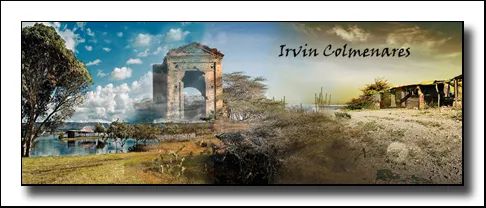




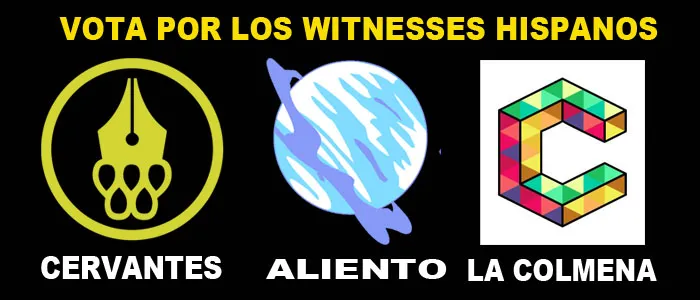
BÚSCALOS EN LOS SIGUIENTES ENLACES
https://wallet.hive.blog/~witnesses
https://peakd.com/me/witnesses
https://ecency.com/witnesses

You can vote for @ocd-witness, with HiveSigner or on Hive Witnesses.


Banner obsequio de los amigos de @rutablockchain
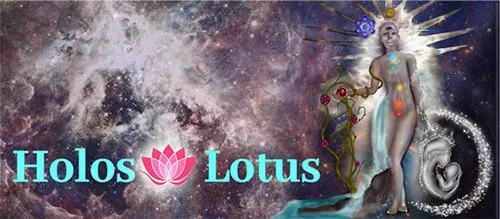

Comunidad Be Entrepreneur

Translated with www.DeepL.com/Translator (free version)


Banner obsequio de los amigos de @rutablockchain


Comunidad Be Entrepreneur

Translated with www.DeepL.com/Translator (free version)